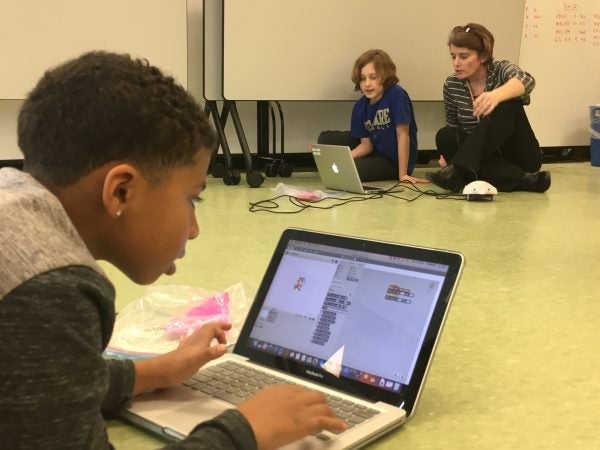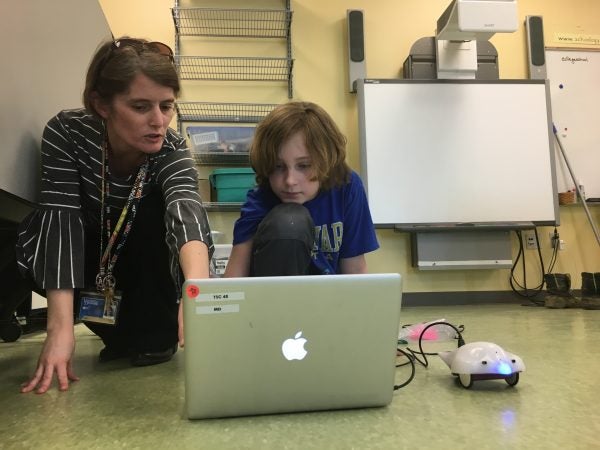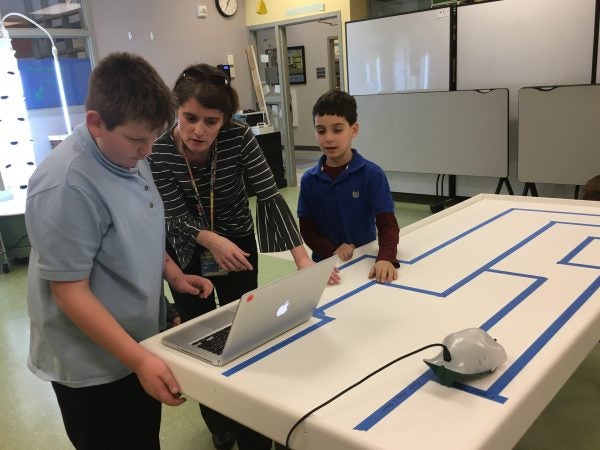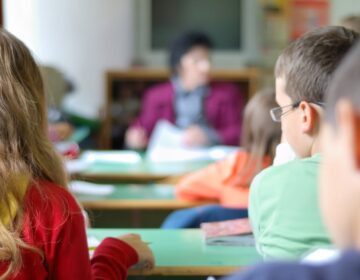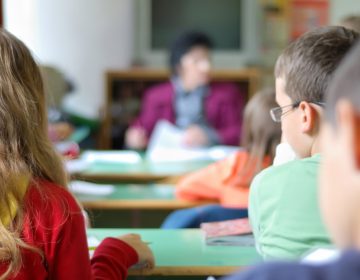Delaware school adds robots, 3D printers to help struggling students
Teachers at The College School in Delaware are using robots and 3D printers to help struggling students succeed.
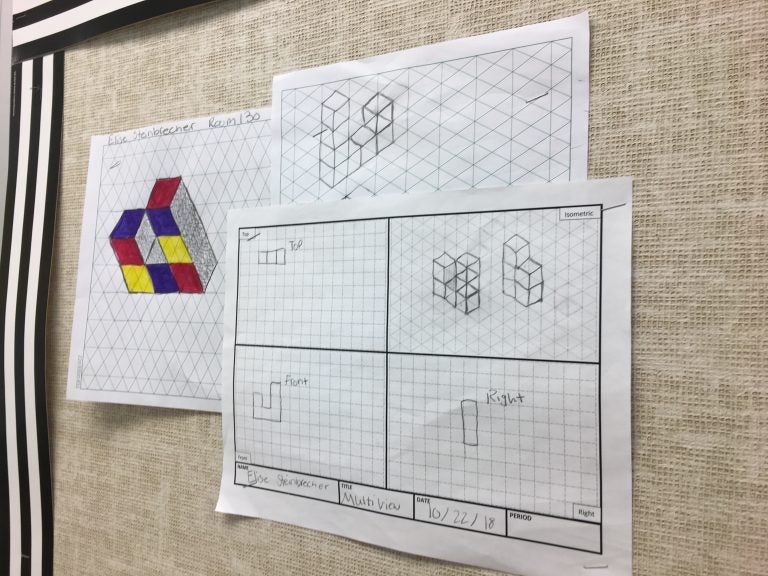
Sketches show the first step in the process of designing 3D puzzles. (Mark Eichmann/WHYY)
On a recent Monday morning, seventh- and eighth-graders Chauncey and Noah worked on a challenging puzzle cube they’ve crafted from wood blocks.
“We’ve had a lot of struggles with crooked pieces,” Noah said. The students at The College School on the University of Delaware’s Newark campus challenge classmates, adults and even visiting reporters to complete the puzzle and keep track of the time it takes.
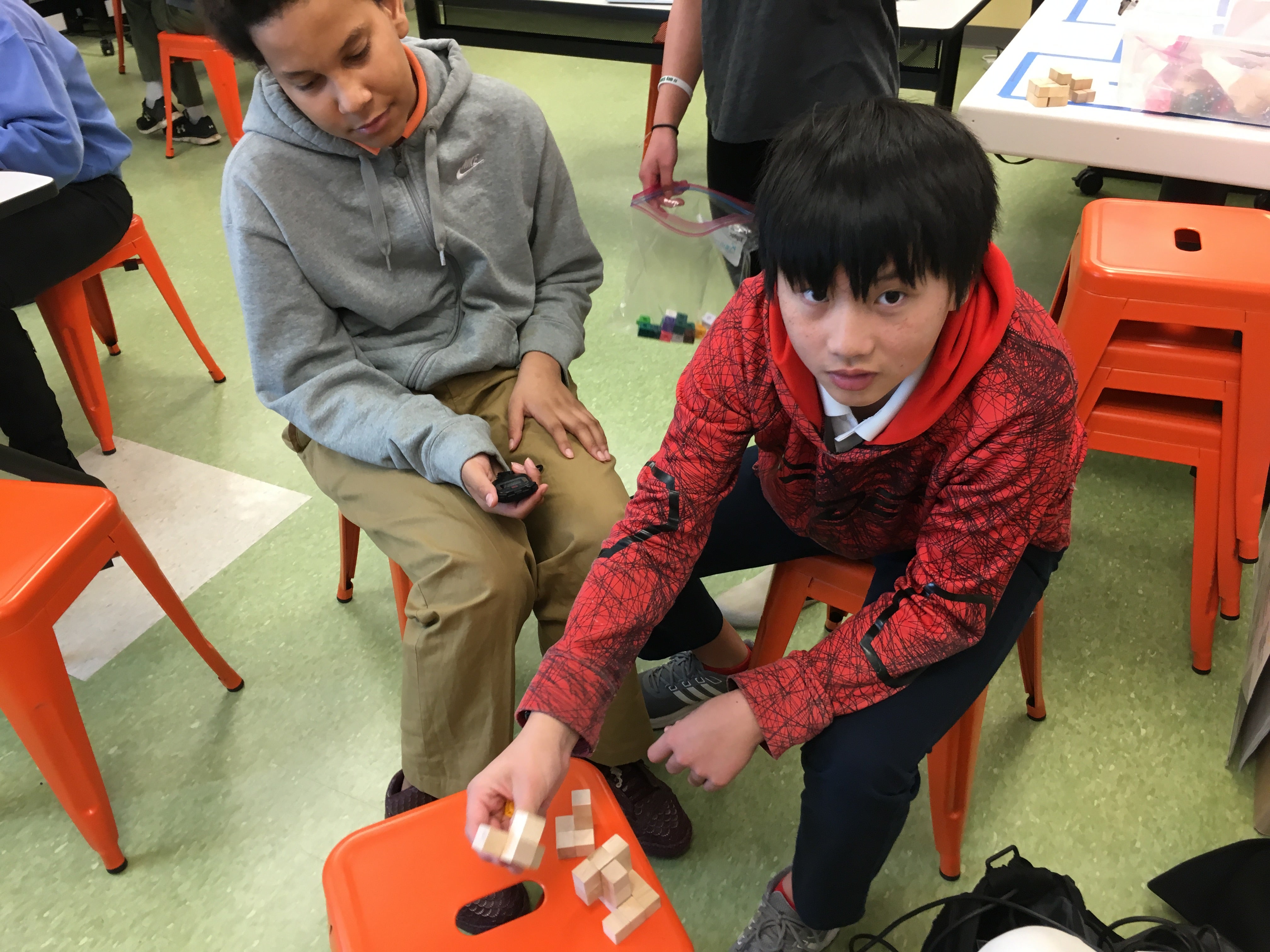
The project is part of the school’s STEM — science, technology, engineering and math — curriculum.
That science and technology focus can help elementary and middle school students overcome learning disabilities at the school, which partners with UD mechanical engineering and clinical psychology departments.
“That’s the culmination of a large project that we’ve been doing, learning the engineering and the design process,” said STEM teacher Laurie Drumm. “There’s a couple of different benefits. One thing, school itself is very language based, and an activity like this taps into talents that aren’t language-based, so the kids that have really strong visual motor skills, the visual perception skills have a chance to shine.”
Drumm will eventually use the classroom’s 3D printer to fabricate the wooden puzzles into plastic. Technology such as the 3D printer is a way the school hopes to reach students who are having trouble with their lessons. Earlier in the year, students fabricated makeshift braces for an imaginary classmate with cerebral palsy. They’ve also used virtual reality goggles to explore the pyramids and the ocean floor.
The private school for students in first through eighth grades benefits from a close relationship with the University of Delaware.
“Many of our teachers are clinical faculty, so there is that tie into the faculty with the school of education, and actually our whole college,” said school director Laura Dougherty. “We’ve really over the years tapped into other resources in the university in terms of making great partnerships with engineering, making great partnerships with clinical psychology.”
More and more, private schools offer special programs as they compete to enroll students with learning disabilities, Dougherty said.
“We’re seeing a lot of bright children that just are not thriving with traditional education, so giving them a little more movement, giving them a little more flexibility, diversifying instruction a little bit and giving them the safety to be more confident is helpful,” she said.
Later in the afternoon, a group of third- and fourth-graders worked on their confidence as they programmed robots to follow a maze. With their robots tethered to laptops on the floor, the children showed some frustration as they struggled to persuade the bird-shaped robots on two wheels to do their bidding.
Drumm encouraged them, but she didn’t give them the answer. The lesson sticks better if they figure it out on their own, she said.
When some students at the school make improvements, parents choose to return them to a more traditional public or private school, but Dougherty said most would benefit from staying longer.
“It would be great to keep everyone here until eighth grade,” she said. “I think we’re going to be seeing more of that with the challenge that we’re bringing to the table, and we’ve really kicked that off with [this] initiative.
“That’s definitely important to a lot of our families and definitely more engaging for our students and definitely preparing them for what lies beyond these walls.”
Fourteen former College School students are enrolled at the University of Delaware; some are in the honors program. Current students are inspired by seeing those alumni succeed — and come back to help mentor at the school, Dougherty said.
WHYY is your source for fact-based, in-depth journalism and information. As a nonprofit organization, we rely on financial support from readers like you. Please give today.



